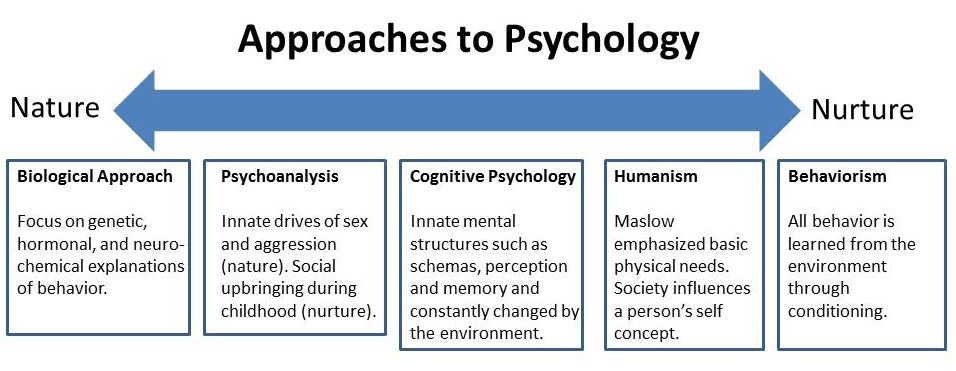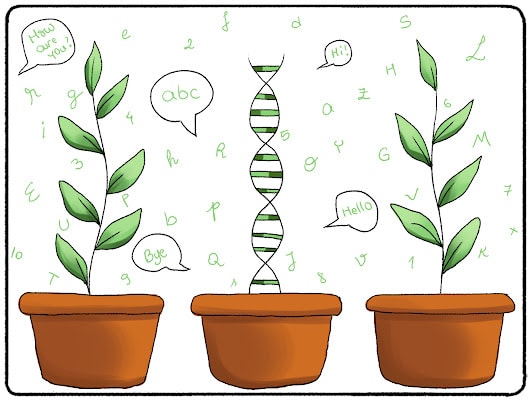I will explain how this debate applies to our personalities in this video. Let’s explore both sides of nature vs. nurture argument and where psychologists sit now.
What Is the Nature vs. Nurture Debate?
In psychology, many pivotal questions often seem to revolve around choosing between two factors: nature vs. nurture. However, when it comes to understanding human behavior and personality, the consensus among researchers is not about choosing one over the other.
Instead, most experts agree that our personalities are shaped by a complex interplay of genetic factors (nature) and life experiences (nurture). This integrated perspective recognizes that while our genetic makeup lays the foundation, our life experiences build upon and shape these inherent traits.

Nativist Viewpoint
Think of this debate as a spectrum. On one side of the spectrum is the nativist viewpoint. Psychologists and people who hold this viewpoint believe that personality can be explained by a person’s nature or genetic makeup.
Everyone has unique genes that contribute to a person’s eye color, face shape, skin tone, and ability to pick up certain skills. Nativists argue that unique genes also contribute to an individual’s personality. While there isn’t a “pleasant to talk to” gene or “sporty” gene, psychologists have pointed to hormones and other genetic factors that influence personality.
How Does Nature vs. Nurture Affect Mental Health?
Depression and substance abuse often come up in these debates. Some scientists believe that they can point to a gene that is apparent in people with depression. The link between serotonin and depression may also suggest that depression can be “passed down.” Studies have shown that addiction, or an “addictive personality,” could be hereditary.
You might have personal experience that backs up or goes totally against this argument. Remember, this is just one side of the spectrum.
If you want to learn more about nativism, it’s best to hear from some psychologists who truly believe in their theory. Some psychologists with a nativist viewpoint include Noam Chomsky and Steven Pinker.

Empiricist Viewpoint
On the other side of the spectrum is empiricists. Empiricism is the idea that “nurture” handles all aspects of someone’s personality. This idea has been around since the 17th century. John Locke, the “Father of Liberalism,” was the first to discuss the idea. He believed everyone is born a “blank slate” or “tabula rasa.” Parents, teachers, media, and culture influence a child’s personality formation and development.
Some more modern psychologists with an empiricist viewpoint include modern behaviorists. The idea that a person can be “conditioned” into behavior or personality is a pure form of empiricism that has carried on into newer psychology schools.
Example of Nature vs. Nurture Experiments
Albert Bandura is one of the most well-known psychologists who contributed to an empiricist viewpoint. His most famous experiment, The Bobo Doll Experiment, showed that children were more likely to display aggressive behavior if they observed an adult displaying aggressive behavior.
Why Is Nature Vs. Nurture Important?
You might be wondering, “Why does this matter?” Why does it matter if our personality traits come from genes or if they come from nature?
To demonstrate this, I want to discuss the idea of conversion therapy and sexual orientation.
Psychologists have long debated whether sexual orientation or rather, homosexuality, is due to nature or nurture. Some have theorized that homosexuality can be traced to genetic factors. Others, like Sigmund Freud, believed that humans were innately bisexual and were “conditioned” through learned behaviors to be straight or gay.
Using these ideas on each end of the spectrum, psychologists began to develop different types of “therapy” to “cure” homosexuality. In the 1920s, some believed that homosexuality could be traced back to a man’s testicles, and experiments involving castration took place. Later, it was believed homosexuality was a product of someone’s upbringing or “nurture.” To “treat” homosexuality, “conversion therapy” was developed. Conversion therapy is still used today in all 50 states. (Twenty states have banned conversion therapy when used on minors.)
Experiments with castration didn’t work. Psychologists have failed to find a “gay gene.” Does conversion therapy work? Can you condition someone into being heterosexual? Do empiricists win this round?
Well, not exactly. There are situations in which people claim that they are “cured” of homosexuality. However, scientific studies have consistently demonstrated that the effects of conversion therapy do nothing to change a person’s sexuality. These studies also show that a person is more likely to become depressed or consider suicide after experiencing conversion therapy.
How Does Nature vs. Nurture Affect Human Behavior and Policy-Making?
Nature vs. nurture isn’t just a fun debate. It has a serious impact on the way that we address people who display certain behaviors or personality traits. Isolating or “treating” certain traits that are considered unfavorable may lead to “therapies,” medications, or other processes that may or may not work. The cause that we attribute to behavior, decision-making, and personality traits has a profound impact on the way that we raise children, treat people who are experiencing mental illnesses like depression, or teach others about why we are all different or the same.
Is Nature vs. Nurture 50/50?
As with many topics in psychology, it’s rare and not always encouraged to take an extremist viewpoint. Simple questions can easily poke holes in naturists' and empiricists' arguments. Nowadays, rather than asking if nature or nurture influences someone’s personality, psychologists ask “how much” of each is involved.

Psychologists are still researching questions that have been asked for decades. While the results may show that a gene contributes to a particular trait or that conditioning may enforce a behavior, none of these studies may show once and for all whether nature or nurture is more dominant in influencing our personalities. The best thing anyone can do in a debate like this is find as many studies as possible, question their validity, and look objectively at how they contribute to this debate.
The debate rages on in classrooms, labs, and even online forums!
Other Debates In Psychology
Nature vs. nurture isn't the only big debate in psychology. There are still so many questions to answer: Are the mind and body separate entities or two parts of one whole? Do we make decisions with free will, or are all decisions determined by fate or other factors? Can we reduce human behavior to parts or look at human behavior holistically?
